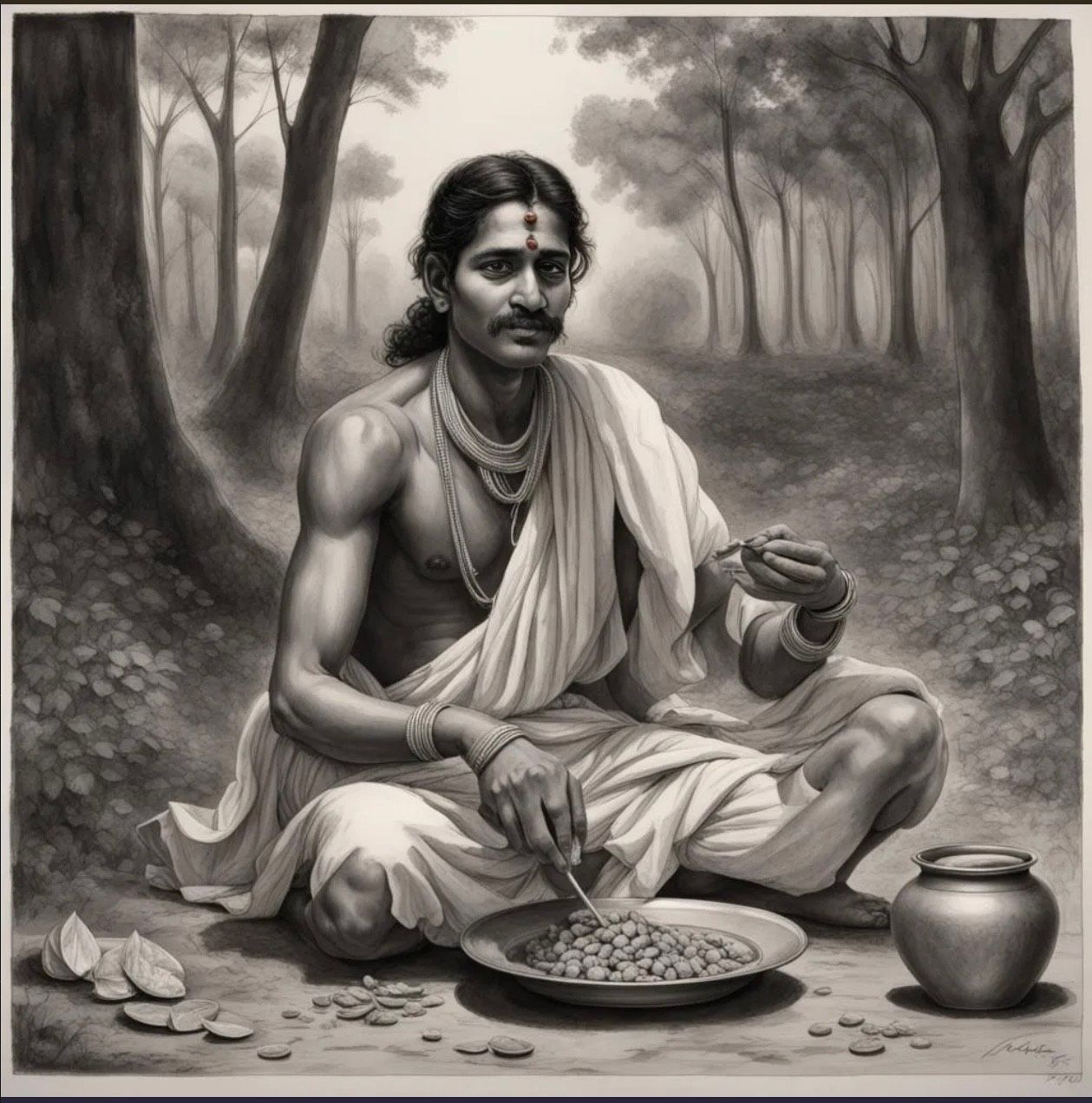Unveiling the Power of small acts
Beyond its tales of courage, warfare, and ethics, Mahabharat carries various profound messages- one that extends far beyond the battlefield narrative.
In the Van Parva of the Mahabharata, we find a mention of the practice of eating Vighasa (विघस ). Vighasa was the food left after offering to deities, learned scholars, Brahmanas, visitors and family members, as was a tradition in ancient India. This was the Dharma of a king and also for a person practising Grihastha ashram. Yudhisthira practised this, and he ate only Vighasa during his forest stay.
During the challenging times of forest-dwelling, Yudhishthira's commitment to the practice of eating Vighasa is an inspiration for all. It reflects duty, self-discipline, and a deep concern for those around him.
After losing in the unethical and rigged dice game, Pandavas were banished to the jungles. Various learned scholars and Brahmins accompanied the Pandavs even in the deep forest, and also there were daily visitors desirous of meeting famous Pandavas & Dharmaraj Yudhisthira.
As a Kshatriya, it was Yudhishthira's Dharma to provide food for those dependent on him, his visitors, and the learned Brahmins. So, on the suggestion of Rishi Dhaumya, Yudhishthira embarks on a journey of difficult austerities, meditating on the 108 names of Lord Surya.
Lord Surya, moved by Yudhishthira's penance and worship, bestows upon him the Akshaya Patra (अक्षय पात्र), an inexhaustible vessel that cooks enough food to feed all. However, a condition was attached: it would exhaust for a day after Draupadi had taken her meal. As an ideal companion, Yudhisthira supports Draupadi. He ate after the food was offered to everyone and just before Draupadi, as she had to be the last to eat.
This act isn't just about an eating routine; it's a profound embodiment of duty, empathy, and shared responsibility. It's a lesson in the strength of compassion and selfless service. Yudhishthira showcases how one can navigate the complexities of household life and Kshatriya duty with grace and shared responsibility.
And so, as we reflect on the Mahabharata's timeless teachings, let us reflect upon the significance of offering food, practising discipline, and the transformative power of selfless service—a journey not just of the body but of the spirit.
